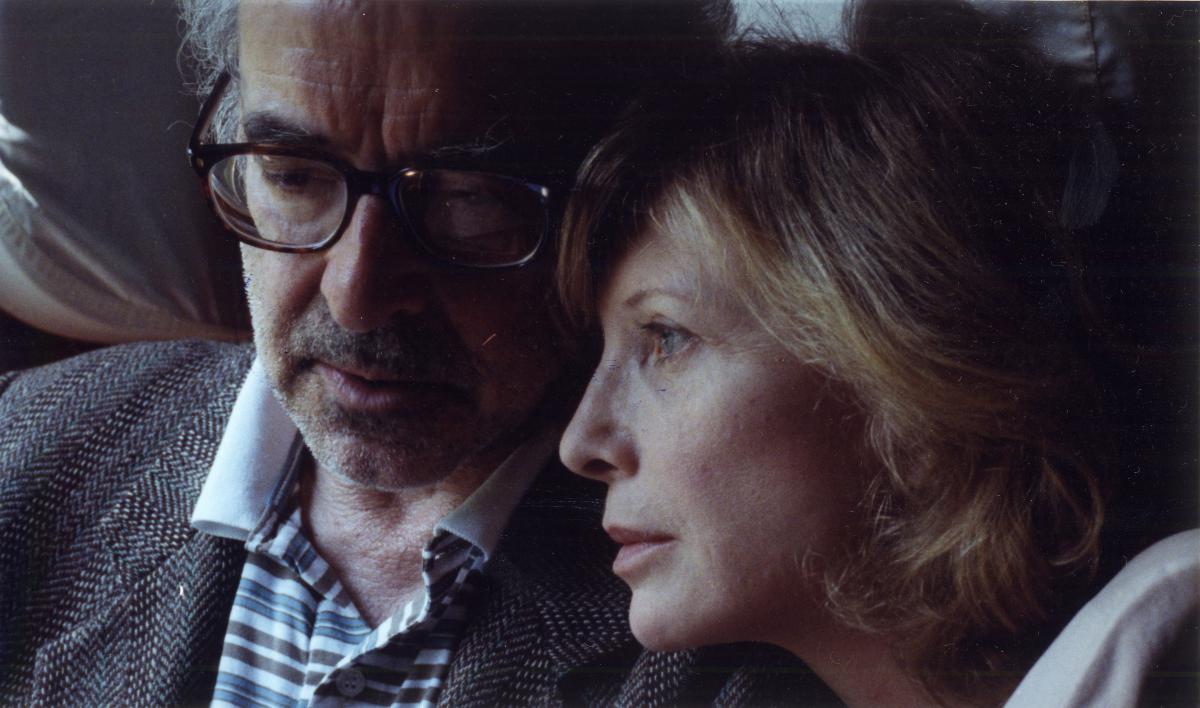Non-compliance with the Prevailing Circumstances

At the end of her previous feature film, Lou n’a pas dit non, Anne-Marie Miéville expressed a wish: “Love will be a relationship that is meant to be between one human being and another, no longer one that flows from man to woman.” In her new film, she tries to understand the meaning, the tremendous power and the frightening limits of this wish, the realization of which she dreams of seeing in our world. In itself and despite everything, the film title establishes a certain confidence which is explained both by renowned philosophers as experts responsible for clearing up the issue and the life of a couple charged with performing its daily demonstration.
Such a project, explained by acts, and the words capable of defining it to begin with, can only discover its difficult meaning throughout a discourse that should be read like a poem and not like a story of interlocking adventures. Each phrase, producing conflicting truths, simultaneously or one after the other, is initially generated by a long dialogue of Plato: Callicles and Socrates, played by two women, bicker from the kitchen to the living room in order to know what distinguishes the good from the bad. That is to say, Right from Wrong. This discussion, which the spectator could just consider sheer pointless philosophy, nonetheless earns its raison d’être, as it provides the film as a whole with a tone and perspective. In some respects, in fact, and in contrast with customs, boring from being so blindly repetitive, the film unfolds its profound structure (and not its almost non-existent fiction) by a sort of inverted reading; the third part, an expression of the difficult emotional life of a couple, refers to the first part, which is only afterwards clarified by the second part. This second part, a Hannah Arendt monologue (On the Nature of Totalitarianism), talks about loneliness, which is not solitude, as we are never alone in solitude, but always two as one, and we only become one thanks to others.
The connection to what surrounds us, nature and humans, arises from each shot, because what grabs us comes from a general kind of orchestration, just like spots of colour, strokes and empty space form the representative arrangement of a painting and are lost there.
The author commits to a cinema far beyond the charms of an entertaining reading, which doesn’t keep her from sliding into it by way of the mise-en-scène, the situations, the work by the actors, the focus on humorous notes. Alas, such a pursuit (particularly close to that of Straub, to Godard and to a few rare innovators of form), which should extract the seventh art from its strait jacket of reassuring certitudes economically supported by the state and by businessmen remains a rare achievement. The narrow-minded and self-satisfied Helvetian funding committees have obviously not supported it. And a wealth of imagination was needed for a poor shoot to be set up, which was also personal, precise and non-compliant with the circumstances of a society that reduces art to money, the ultimate proof of its intellectual and above all spiritual decline.
This is shown by Anne-Marie Miéville in a short introduction, by describing the words that were undoubtedly used by the jury discussing her script and the funding she was asking for. The remarks falling from their mouths are aesthetical and economical (no common thread between the parts, weak budget) and end with a statement that carries a long way, from the present towards the future: “Poetry is over!” This film bears witness to the fact that that is not true... for now.
Originally published as ‘Insoumission aux circonstances du moment” in Le Matin Dimanche, 6 April 1997.

